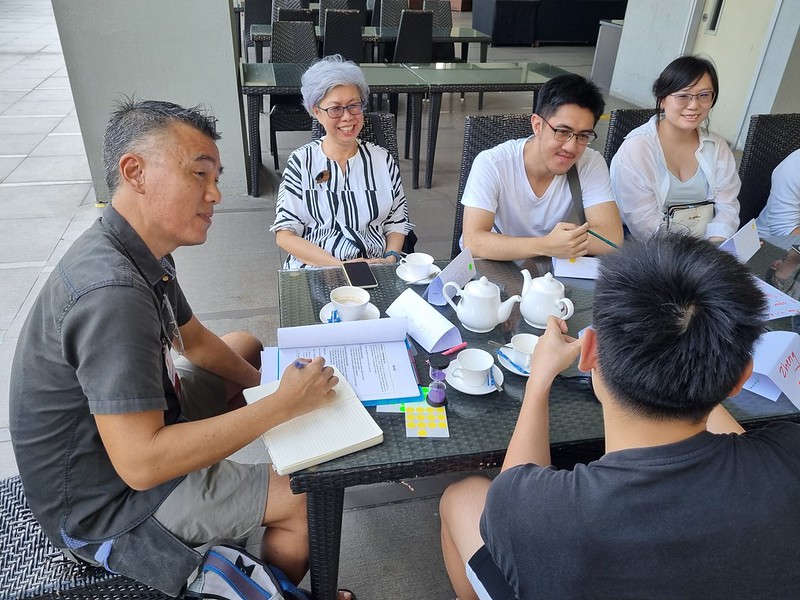
We held our Humanist Cafe last Sunday (29 May) to discuss the topic of growing up as a freethinker.
Why was this topic chosen? Even though Singapore is a secular country with freedom of belief, growing up as a freethinker can be a lonely experience for those growing up in deeply religious families.
We also wanted to discuss the best way to bring up a child in a non-religious family. Many religions in Singapore have a thick layer of children’s literature to teach moral values. Many religious buildings have childcare corners.
For the non-religious, they have to find their own ways to cope. The good news is, non-religious individuals have actually found many ways to cope, and they have pretty decent lives. These coping mechanisms were just not well documented, and this is what the Humanist Society aims to change.
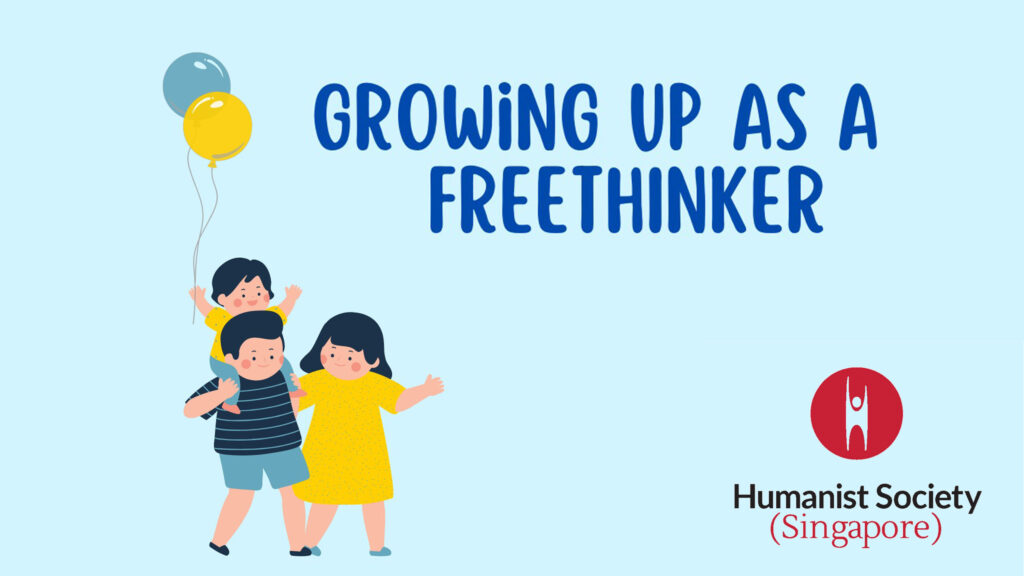
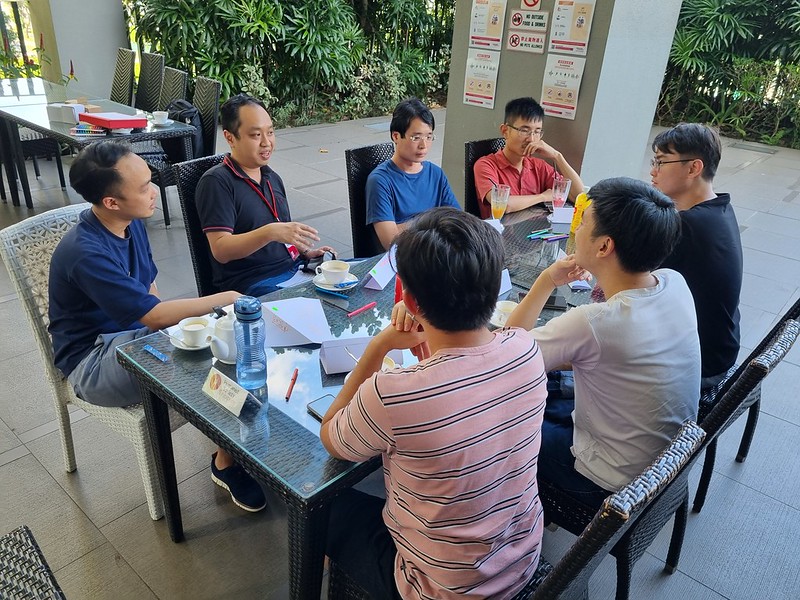
Growing up non-religious
Growing up, where did the non-religious get their moral values?
For the slight majority of Cafe participants who were non-religious their whole lives, some observations.
Parents are the main authority and source of moral guidance. They would set expectations and rules for the child, and children are usually able to get considerable guidance.
The golden rule is often involved. Parents would tell their child, what would it be like if the other party did to you, what you did to them? Teaching the golden rule can be quite effective.
Exposure to different ideas was commonly experienced. Parents would teach the children how to think, instead of just what to think. And this is what participants remember most from their upbringing.
Interestingly, a slight majority of Cafe participants polled said they would bring their child to different religious buildings to expose them to the world of religions, and to think through the different religions and rituals. Critical thinking is valued.
Overall, in non-religious families, there is little pressure to join religious activities, and non-religious children went through a very default progression. Most had a normal upbringing and are productive citizens today.
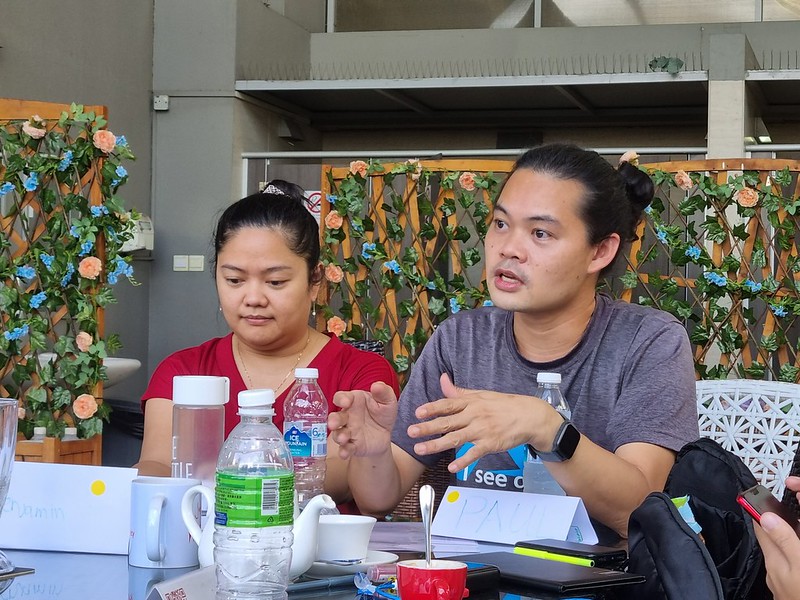
Growing up in a religious family
A large minority of participants come from a religious upbringing and did not become a freethinker until they were much older.
Established religious organizations often have childcare corners and that helped a lot when the entire family went for religious service.
For this group, they got their moral values mostly from stories. There were many religious stories that their parents would share with them.
Even though they became freethinkers many years later, they suggested several things that the non-religious can learn from religious communities. For example:
- Having meaningful rituals at a fixed time and place, where families can experience weekends together
- Some festivals at a certain time of the year, or having an Open House
- Good children literature with meaningful stories
- Music at events, although people must not be coerced to join in.
- More membership benefits in a non-religious organization
- Shelters for people who are disowned by families after they left religion
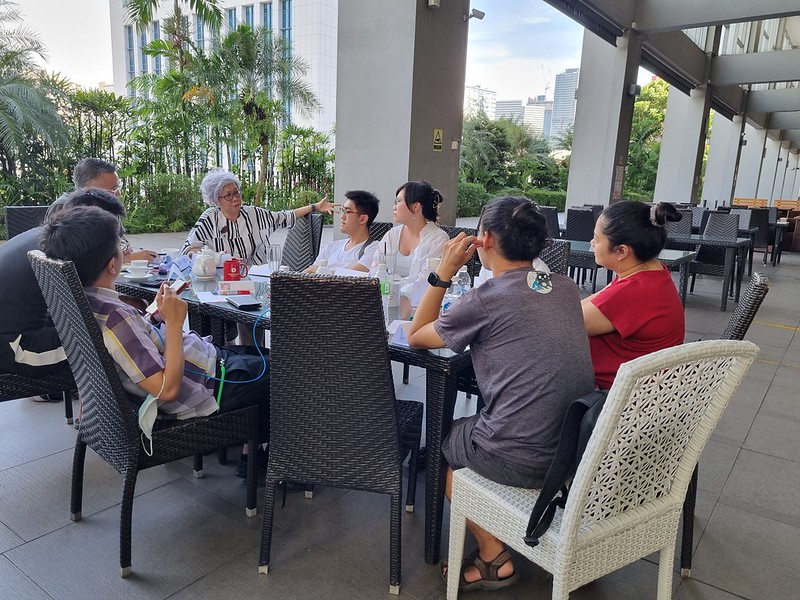
Participants also suggested that the Humanist Society learn from countries that are very non-religious, such as Finland and the Czech Republic, and take a leaf from their books.
One thing that these freethinkers definitely do not want to see in a non-religious organization is intolerance and censorship that they have experienced in their previous religious community.
Freethinkers rejected by religious families
Facilitators shared with the participants that certain individuals in Singapore have been under pressure by deeply religious families to convert back to the faith. Atheism is sometimes blamed for family tensions and problems.
Participants suggested some messagings that the Humanist Society can communicate at interfaith dialogues.
- Emphasize that their children have the right to live their choices, and parents cannot keep them forever in a religion.
- Emphasize that atheism is not against religion and many atheists are actually supportive of freedom of religion.
- Parents can still teach children good values in ways that do not involve religion. Eg. a religious parent can still teach his/her child to be accountable to his/her actions.
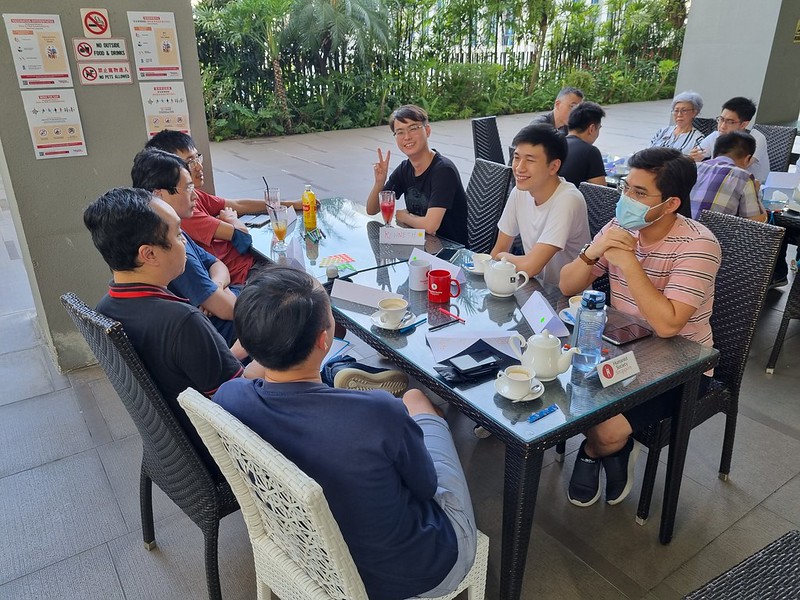
Facilitators also shared some books suitable for children in non-religious families. These include:
- What is humanism? How do I live without a god? And other big questions for kids (Wayland) by Michael Rosen and Annemarie Young (ages 8-14).
- Belonging and Believing: My Humanist Family (Books at Press) by Gill Vaisey (ages 4-7) – learn about the lived experiences of a young boy and his humanist family
- Atheism for Kids (Winter House Books) by Jessica Thorpe is a short introduction for younger children to what it means to be an atheist.
- And for young adults we recommend The Young Atheist’s Handbook by Alom Shaha.
Source: Humanist UK
Humanist Cafe in the months ahead
This Humanist Cafe is the first in a series of monthly gatherings aimed at providing peer support for the non-religious at multiple stages of life.
Guided by trained facilitators, participants will share their life experience along one of the five themes below, giving and drawing support from fellow participants in the process.
The upcoming themes are:
- Becoming Freethinkers (June)
- Challenges in Life (July)
- Finding purpose in life (August)
- Death and dignity (Sept)
Follow us on our channels and sign up when we announce them!
Do register early as slots are limited!




